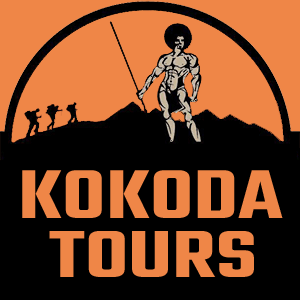Kokoda Trek: Nutrition Tips on Common Food, Meals and Snacks When Trekking the Kokoda Track
Introduction
Embarking on a trek along the historic Kokoda Track in Papua New Guinea is a thrilling adventure filled with challenges and breathtaking scenery. As you prepare for this journey, it’s crucial to consider your nutrition and meal plan to ensure you have the energy to tackle each step of the hike. This comprehensive guide will provide valuable insights into the food options available along the trail and offer tips to optimize your trekking experience.
Nutrient-Packed Local Delights Along the Track
Indigenous Staples
Rice and Bananas
Rice, a dietary staple in Papua New Guinea, is a reliable source of carbohydrates to fuel your trek. Bananas, locally grown along the track, provide essential potassium, aiding muscle function and preventing cramps.
Sweet Potatoes and Taro
In villages along the Kokoda Trail, you’ll encounter locally grown taro, sweet potatoes and yams. These root vegetables are rich in complex carbohydrates, offering sustained energy for your hike.
Campfired Corn
Experience the unique delight of campfired corn, a tasty treat enjoyed by trekkers along the trail. Its simplicity and deliciousness make it a favourite among those seeking a wholesome snack.
Fresh Fruits
Mandarins and Passion Fruit
Though it is reasonable to believe that fresh fruit should be readily available, it’s essential to note that the availability may vary. Mandarins and passion fruit are occasional treats, providing a burst of natural sweetness and vital nutrients.
Challenges of Fresh Fruit Accessibility
While it’s ideal to have fresh fruit and vegetables consistently, logistical challenges may hinder availability. Trekkers may be unable to purchase fresh fruit on a consistent basis, emphasizing the need for alternative nutrition sources.
Trail Snacks and Treats
Local Snacks
Lollies and Biscuits
Local lollies and biscuits are popular trekking snacks, offering a quick energy boost during breaks. Purchase these items for group consumption and support the communities along the track.
Cheese Twisties and Muesli Bars
Packets of cheese Twisties and muesli bars are also available in villages for a few kina per packet. These convenient snacks provide a mix of flavours and nutrients, making them an excellent addition to your trekking meal plan and a treat for those who have the hiking munchies.
Hydration and Refreshments
Coke and Fanta
Along the Kokoda Trail, you can find refreshing beverages like Coke and Fanta, available for purchase at around 5-7 kina per pack. Staying hydrated is crucial, especially in the tropical climate of Papua New Guinea.
Kina Notes and Budgeting
Trekkers are advised to budget for small purchases, using kina notes to pay for snacks and beverages. Plan accordingly to ensure you have enough currency for these essential refreshments to eat along the track.
Planning Your Meals to Make the Most out of Your Kokoda Campaign
Meal Preparation and Options
Freshly Prepared Meals
Meals are prepared along the Kokoda Trail by experienced cooks, ensuring a balance of nutrients for trekkers. Freshly prepared dishes contribute to the overall enjoyment of the trek.
Dehydrated and Space Food Sticks
For convenience, some trekkers opt for dehydrated meals and space food sticks. These lightweight and easy-to-carry options are ideal for sustaining energy during long trekking days.
Endurance Events and Nutrition Tips
Considering the physical demands of the Kokoda trek, it’s crucial to plan your meals strategically. Endurance events like this require a mix of carbohydrates, proteins, and fats for optimal performance.
Healthy Options
Fruit Roll-Ups: A Nutrient-Packed Snack
As you venture along the trail, incorporating healthy snacks like fruit roll-ups can be a smart choice. While the availability of these treats may vary, bringing your own supply ensures a convenient and nutritious option. Opt for fruit roll-ups made from real fruit with minimal added sugars. These lightweight snacks are an excellent source of natural sugars, providing a quick energy boost during strenuous sections of the hike.
Freeze-Dried Food: Lightweight and Nutrient-Dense
Freeze-dried food is a popular choice for trekkers seeking lightweight and convenient meal options. With the water removed, these meals are easy to carry and rehydrate quickly. Consider packing a variety of freeze-dried options, such as fruits, vegetables, and even full meals. Ensure the products you choose have a good balance of essential nutrients to support your energy needs.
Sustaining Energy with Meat Jerky
Meat jerky, known for its long shelf life and high protein content, is a valuable addition to your trail snacks. Rich in essential nutrients, jerky provides sustained energy and helps repair muscle tissue after strenuous physical activity. When selecting jerky, prioritize lean options with minimal additives. This savory treat can be a satisfying and practical source of protein.
Crafting Your Hiking Meal Plan
Tailoring Meals to Your Needs
A well-structured hiking meal plan is vital for maintaining energy levels and sustaining endurance during the trek. Consider the daily mileage, elevation gains, and overall intensity of your hike when planning meals. Incorporate a mix of carbohydrates, proteins, and healthy fats to meet the diverse demands of the Kokoda Trail.
Dehydrated Hiking Meals: Compact and Convenient
Dehydrated hiking meals are a popular choice among trekkers due to their compact nature and long shelf life. These meals often come in convenient, lightweight packaging, making them easy to carry. When planning your meals, include a mix of dehydrated options to ensure you have a variety of flavors and nutrients to keep you fueled throughout your journey.
Balancing Nutrition for Optimal Performance
Focus on maintaining a balanced diet that caters to the physical demands of the Kokoda Trail. Hydration is key, so be sure to include electrolyte-rich beverages in your meal plan. Additionally, plan for regular snack breaks to keep your energy levels consistent and prevent fatigue.
In conclusion, as you prepare for the Kokoda trek, thoughtful consideration of your food choices is crucial for a successful and enjoyable experience. Whether you opt for local delights along the trail or bring your own specialized snacks, prioritizing nutrient-dense options will contribute to your overall well-being on this challenging adventure.
Conclusion
Trekking the Kokoda Trail is a remarkable adventure that demands careful consideration of your nutritional needs. With a variety of local delicacies and snacks available along the track, you’ll have the opportunity to savour the flavours of Papua New Guinea while staying energized for the journey. Plan your meals wisely, stay hydrated, and embrace the culinary experiences that add a unique dimension to this unforgettable trek
FAQ’s
Q: What food should I bring when trekking the Kokoda Trail?
A: It is recommended to bring a mix of easily portable and non-perishable items such as trail mix, energy bars, dried fruit, sweet biscuits, and snack items along the trek.
Q: Can I rely on local food along the Kokoda Trail?
A: While some meals and snacks may include local food such as sweet potatoes, yams, and mandarins, it is advisable to bring your own provisions to ensure you have an adequate supply of food throughout the trek.
Q: Are there specific nutrition tips for trekking the Kokoda Trail?
A: It is important to focus on high-energy, lightweight foods that provide sustained fuel for the rigorous trekking experience. Consider items like energy bars, dried fruit, and nuts for convenient and efficient energy sources.
Q: What meals are typically provided during Kokoda treks?
A: Meals are generally prepared by the trekking team and may include a combination of staple items such as cornflakes with powdered milk for breakfast, as well as lunch and dinner options that feature a mix of local and non-perishable foods.
Q: How should I ensure the cleanliness and safety of the water and food along the Kokoda Trail?
A: It is recommended to bring purification tablets or portable filtration systems to ensure the safety of the water consumed during the trek. When it comes to food, adhere to hygienic practices and use plates and cups that can be easily cleaned.
Q: Can I bring personal food items along on the trek?
A: Yes, it is strongly recommended to bring your own selection of snack items and personal food preferences to supplement the meals provided during the trek.
Q: What are some traditional trail foods I might encounter along the Kokoda Trail?
A: Along the track, you may come across traditional trail foods such as Choko Vine Leaves, a staple in Papua New Guinean cuisine, which can provide a unique and local culinary experience.
Q: Are there specific considerations for dietary restrictions or preferences when trekking the Kokoda Trail?
A: If you have specific dietary needs or preferences, it is advisable to communicate these to the trekking team in advance to ensure they can accommodate your requirements as much as possible.
Q: What are the provisions for meals and snacks during the Kokoda trek?
A: Meals and snacks are typically part of the trek package, with the trekking team organizing and providing necessary food items to sustain trekkers throughout the journey.
Q: How can I ensure I have enough sustenance during the trek?
A: It’s important to carry enough ration and snack items to supplement the meals provided, ensuring that you have an adequate supply of food to maintain your energy levels during the trek.




